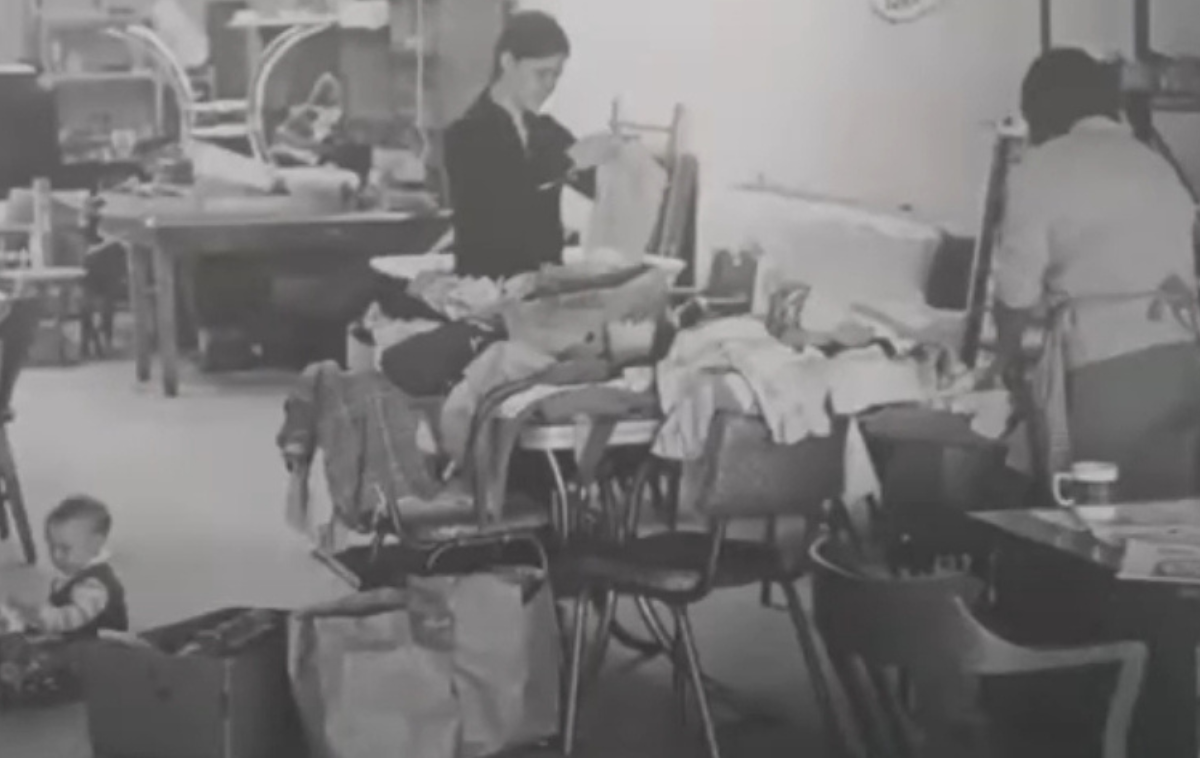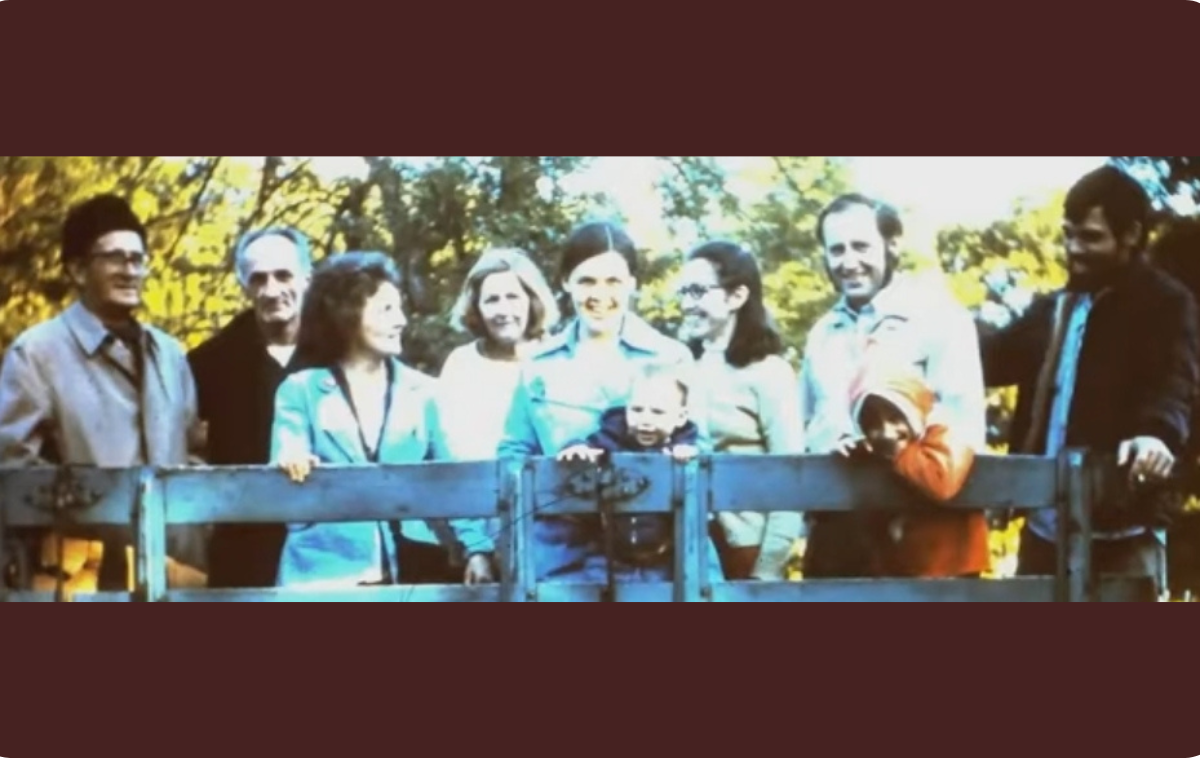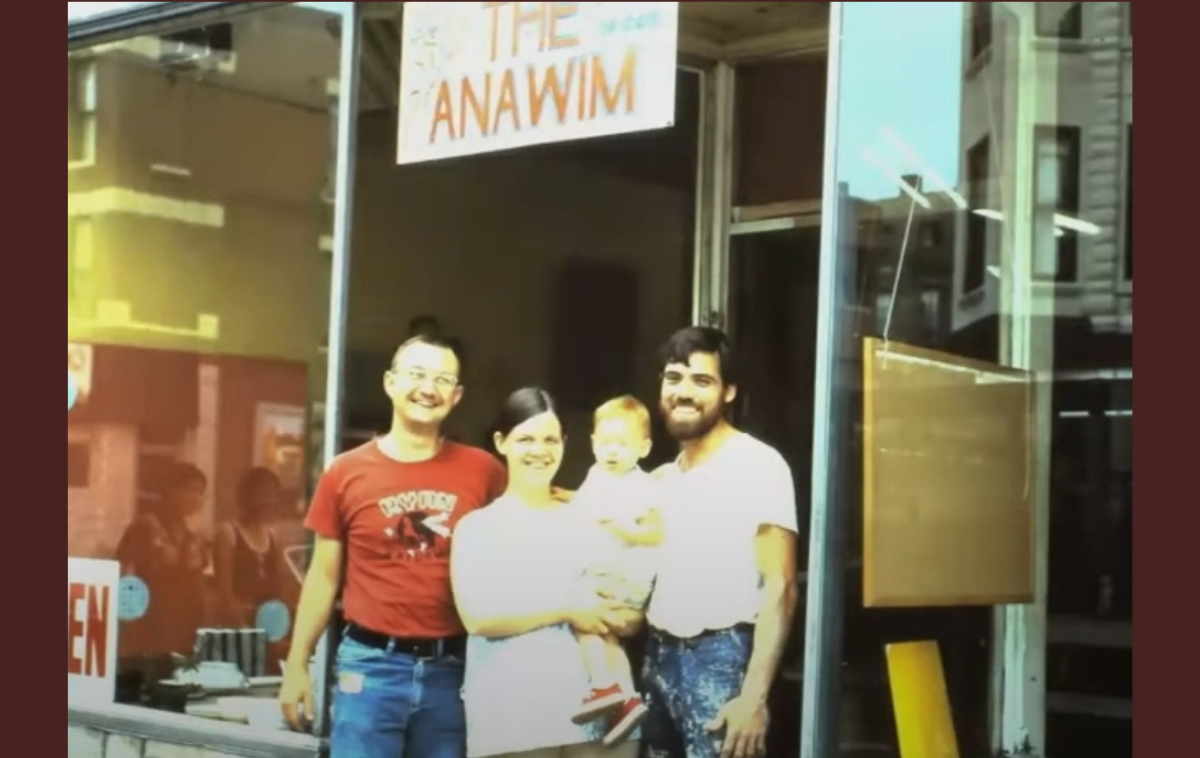Intentional Franciscan groups drive church renewal and service
Author: Eli Pacheco
Date Published: October 27, 2025
In the late 1960s, Franciscans created intentional communities in poor neighborhoods worldwide. Influenced by France’s Taizé Community and worker-priest movements, small groups of friars, sisters, and laypeople sought to live simply and in service, much like the early Franciscans.
Many communities persisted for years, others for decades, motivated by St. Francis’ commitment to serving others. Between 1969 and 1985, Franciscans, Catholic Workers, and lay members of the Gospel Family aided Chicago’s poor, guided by Gospel values.
Members are now scattered across the country, but their collective experiences continue to mold the paths they follow. Their vision may guide future Church renewal.

Volunteers sort clothing at the Anawim storefront near the Armitage Street apartments where Gospel Family members lived. The group provided a variety of goods for those in need, including food and clothing. Gospel Family originated with four Franciscan friars from the legacy Assumption Province, who settled into that apartment in October 1969. (Photo courtesy of Br. David Buer, OFM)
Gospel Family takes root in Chicago
Following the Second Vatican Council (1962–65), Franciscans founded communities such as Gospel Family in the late 1960s and 1970s to help restore the Church’s connection with modern society. The group started with a homeless man, several laypeople (including a Vietnam War conscientious objector) and the friars. As it developed, they opened the Anawim storefront to give clothing, food and other essentials to those in need.
They hosted Wednesday night Masses with discussions and potlucks, volunteered with other organizations, worked various jobs, and depended on donated food for meals, like St. Francis and the early friars.
Br. David Buer, OFM, found his calling with Gospel Family and joined the Gospel Brothers Franciscan friary in Chicago during the 1970s. He lived in a low-income area, working in soup kitchens and shelters from 1978 to 1982, which inspired him to become a Franciscan friar in the early 1990s.

Members of the Gospel Family community pose for a photo in the back of a trailer on the grounds of a Catholic retreat house run by Franciscan sisters. The group grew crops and sold them in town. In a Zoom call with several group members, one member recalled that they accidentally planted cherry tomatoes instead of classic globe tomatoes. (Photo courtesy of Br. David)
'We all form the Body of Christ’
Gospel Family transformed more lives than just Br. David's.
Kristine Pierie Sonnleitner discovered Gospel Family in the early 1970s while serving with Volunteers in Service to America, which, along with the Catholic Worker movement, deeply influenced her spirituality. “They were alternatives to a hierarchical Church organization that often did not encourage the gifts of the laity,” she said. “We need each other's participation for a healthy spiritual community.”
Sr. Marilyn Trowbridge, SFP, served as U.S. Congregational Councilor for the Franciscan Sisters of the Poor and started her ministry with the Gospel Family in the early 1970s, living with 15 sisters in little apartments and working with vulnerable groups.
“We were dependent on God and each other,” said Sr. Marilyn, who recounted living Franciscan poverty to “an extreme” – sleeping on army cots, without a phone, radio, television, “sense of beauty” or “common food items of pleasure.”
The Gospel Family in Chicago closed in 1985, but some members moved to nearby apartments and as far away as South Africa to maintain their work. The group also expanded into several states, including:
Arizona
Arkansas
California
Minnesota
Nebraska
New Mexico
New York
Oregon
South Carolina
West Virginia
Wisconsin
"We can say the Gospel Family was not in the places, but in the people whose lives intertwined in this Franciscan community," Br. David said.
Many continue to participate in God's work, including:
Phil and Kathy Dahl-Bredine, inspired by St. Francis, are lay missionaries to indigenous communities in Oaxaca, Mexico. They wrote “The Insurrection of the Common Good” (Floricanto Press), a novel based on real events. After moving from Wisconsin to New Mexico and establishing a Montessori school, their eldest daughter, Erica, now leads Catholic Relief Services in El Salvador and Mexico.
Cyprian Consiglio, OSB Cam., is a Camaldolese Benedictine monk, musician, composer, author and teacher, and is Secretary General for Monastic Interreligious Dialogue in Rome. He has written books such as “Rediscovering the Divine – New Ways to Understand, Experience and Express God.” While at DePaul University in 1976–77, he spent 10 months with Gospel Brothers and valued their “non-institutional” approach. “It felt like the images in the gospel for the reign of God, yeast in the dough, salt in the earth, and a creative expression of Franciscan charism as the church was urging after Vatican II,” he said.
Bob Hurd is a revered Catholic liturgical composer and former instructor at the Franciscan School of Theology.
Sr. Mary Connor, OSC, abbess of the Poor Clares in Travelers Rest, South Carolina, joined Gospel Family six years before Br. David, and credits him as an essential connector. “At times in your life, you realize that periods that were shorter were quite formative,” she said. “My time in small communities was very impactful.”
Br. Rod Petrie, OFM, spent 6 months with Br. Paul Lachance, OFM, in two small fraternities near Gospel Family. He co-founded St. Francis Inn in Philadelphia in the late 1970s with Br. Emmet Murphy, OFM, after six months with Gospel Family in Chicago. The inn also installed a nearby intentional friary that still exists.
In 1976, Br. Bob Pawell, OFM, founded the Tau House in New Orleans, which ministers to people beyond the regular church care.
One person ran a hermitage in West Virginia for four decades. Three families, inspired by Peter Maurin’s Catholic Worker model, moved to southern Wisconsin. Some launched community service and nonprofits through the Port Ministry in Chicago. Three helped the anti-Apartheid movement in South Africa for 15 years. A nun dwelt with the poor in a hotel and led weekly Bible studies.

Early Gospel Family members Tom and Carol LaPointe stand at the door of the Anawim storefront in Chicago with their child and Fr. Tony Taschetta, who was visiting from the Joliet, Illinois diocese. Anawim, like the current Franciscans Downtown establishment in Wisconsin, offered a respite for anyone in need – a community feature Br. David Buer, OFM, suggests today’s spiritual renewal could benefit from. (Photo courtesy of Br. David)
Finding ways of renewal
The Church and Franciscans seek renewal. Recent synods, including efforts in 2021, summoned the Franciscan family to a synodal process focused on revitalizing Friars Minor identity. Br. David trusts small, purposeful communities can support this renewal.
Decades after Gospel Family closed, Br. David and the late Br. Sam Nasada, OFM, founded a fraternity in Elfrida, Arizona, near the U.S.-Mexico border, in 2017, which closed in August 2023. About 50 friars visited; 12 remained long-term. The group also helped establish the Franciscan Mission Service (FMS) lay ministry house, placing lay missionaries on two-year worldwide assignments.
FMS, with backing from Br. Joe Nangle, OFM, assigned volunteers to Washington, D.C., supported a house in Douglas, Arizona, for border work from 2020–2024, then moved to El Paso, Texas. The fraternity also visited the Poor Clares in Nogales, Sonora, Mexico.
“These fraternities can be as important to Franciscan life and ministries as are the more institutional fraternities and ministries,” Br. David said.
Br. David invites friars to consider forming new communities, where “friars are inspired to venture out to form contemplative fraternities in mission – or what I call the small, intentional, inserted Franciscan fraternities.
“I'm almost 72, but I think I may have enough energy to help form one more before Sister Death claims me.”
Br. David continues to bring the Gospel Family together on Zoom, a checkerboard of Franciscan lay and religious members who have established schools, authored books, raised families and work with a Franciscan spirit.
“People connected to the Gospel Family and never left, but extended the community in other places,” Br. David said. “Many would argue that the Gospel Family has never ended. Our relationships and our shared Franciscan values continue to this day.”

.png?sfvrsn=9a327e10_2)